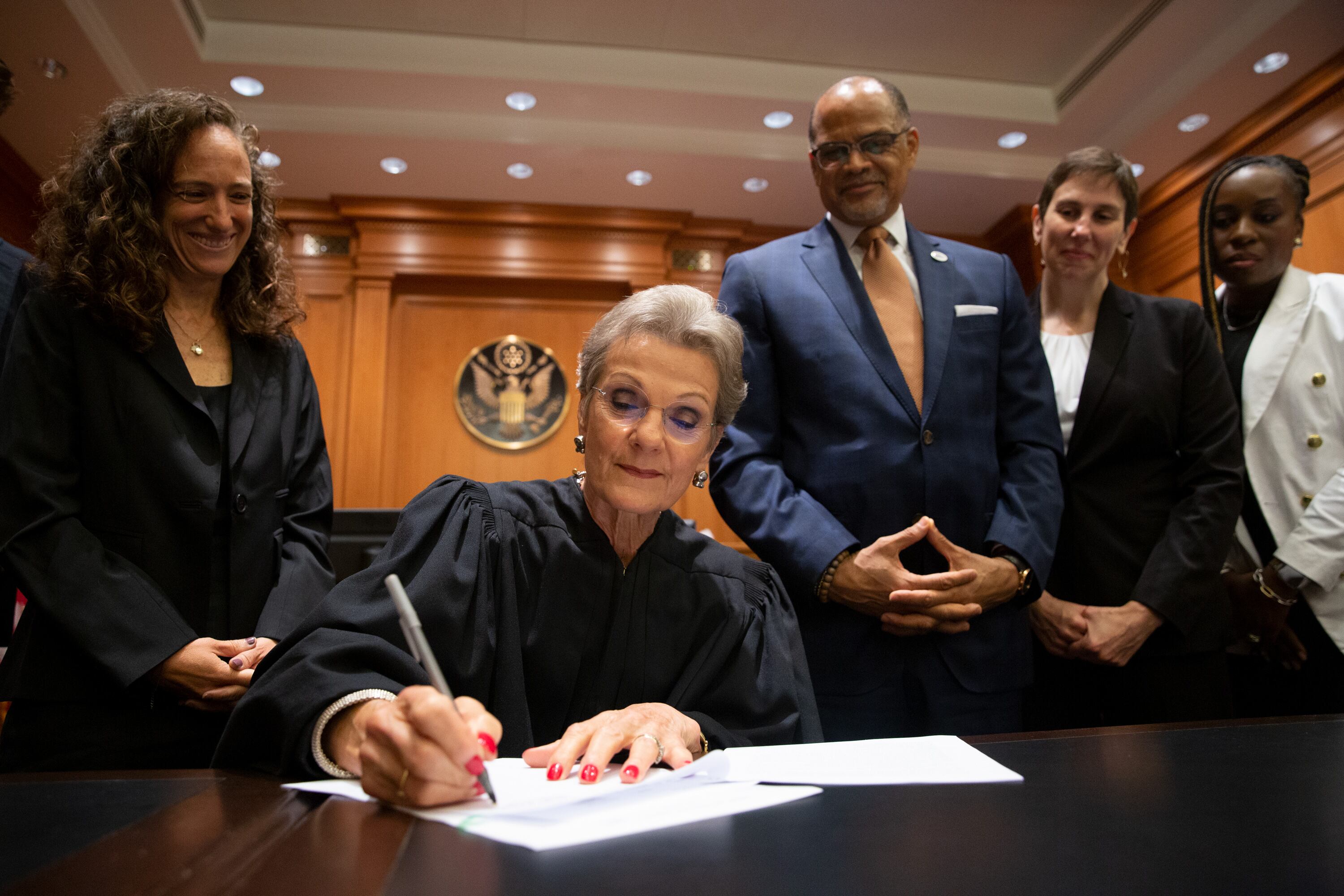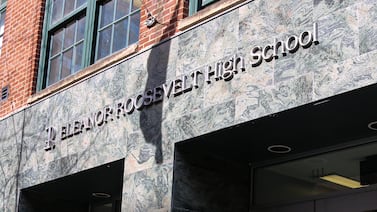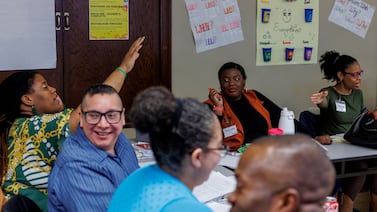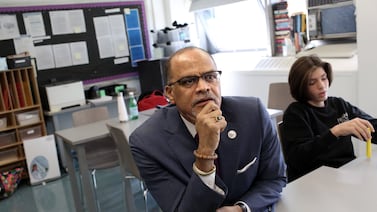Sign up for Chalkbeat New York’s free daily newsletter to keep up with NYC’s public schools.
Facing budget cuts and a hiring freeze, New York City’s Education Department has failed to fully comply with a federal court order meant to address longstanding delays in providing services to children with disabilities, according to court documents released this month.
And a court-appointed monitor is urging City Council, Mayor Eric Adams, and other education officials to find “near-term/interim emergency funding” to meet the order’s requirements.
At a hearing in July, a federal judge ordered the Education Department to begin implementing 40 different reforms to more quickly provide special education services — such as speech therapy or payments to families for private school — to families who won them through an administrative legal process.
In an unusual show of support for a court order targeting his own agency, schools Chancellor David Banks personally attended the summer hearing, shaking U.S. District Judge Loretta Preska’s hand and posing for photographs. He issued a statement declaring that “change is long overdue,” earning praise from advocates who note the Education Department has not complied with orders for services on time in more than 90% of cases.
But out of 16 reforms the Education Department was required to make by mid-November to speed up that process, only nine were fully implemented, according to the first progress report from David Irwin of Thru Consulting LLC, the court-appointed monitor overseeing the city’s compliance with the order, known in legal jargon as a “special master.” (The 40 reforms mandated by the court order have deadlines that range from three months to over a year. The special master is expected to file a progress report every four months.)
The Education Department has “shown a significant commitment and effort” to implement the requirements, Irwin wrote, noting that “most” of the outstanding items due in November should be completed by the end of 2023.
Compliance with the order’s upcoming requirements in doubt
But a hiring freeze and budget reductions ordered by City Hall are impeding progress on key elements of the court order, specifically hiring staff and overhauling severely outdated technology systems, Irwin’s report notes. At least five of the 10 changes due in January are not likely to be completed on time, he wrote.
“Each day that passes, thousands of our most vulnerable children are not getting services they need when more steps could be taken,” Irwin wrote.
The office responsible for implementing special education orders relies on handwritten forms, paper-based invoices, and other laborious data-entry practices, a previous report found. Its staff are also overwhelmed, as the number of cases moving through the special education complaint process has exploded in recent years.
The court order was meant to give the Education Department a roadmap for improving its systems, hiring staff, and even launching a helpline for families to get status updates on their cases — goals that may be thrown off course if the department is unable to bring in new employees or win approval for budget requests.
Rebecca Shore, the litigation director of Advocates for Children, which brought a class action lawsuit that led to the court order this summer, said the Education Department has been making efforts to comply. But failing to implement elements of the order is unacceptable, she said.
“The budget constraints the city is announcing should not impact their compliance,” Shore said. Asked if her organization is planning to go back to court to enforce the order, Shore said her team is “discussing our options.”
Spokespeople for Adams and Banks did not answer questions about whether they will allocate needed funding or staff to comply with the court order.
“We continue to work collaboratively and intensively with the Special Master as we move forward,” City Hall spokesperson Amaris Cockfield wrote in an email. Preska, the federal judge presiding over the case, declined to comment.
Order stems from lawsuit filed in 2003
The federal court order stems from two decades of litigation over the Education Department’s failure to swiftly provide special education services or reimbursements. When a family believes their child is not getting the right special education services, they have a right to file a complaint that is heard by an administrative judge known as an impartial hearing officer.
That officer can order a range of solutions, from additional speech or occupational therapy to private school tuition payments if a family can show their child cannot be adequately served in a public school.
Under a 2007 legal settlement, the city is supposed to implement hearing officers’ orders by providing the required payments or special education services within 35 days, unless the officer lays out a different timeline. But the Education Department blows the deadline in the vast majority of cases, often taking months longer.
For orders with due dates between August and November 2022, the Education Department implemented 8.6% of orders for special education services on time and 3% of orders for payments, according to a recent audit released as a result of the 2007 settlement. (Those figures cover a period before the federal court order this summer; more recent figures were not yet publicly available.) The city has paid more than $25 million for the audits and another $912,000 for Irwin’s services as special master as of June.
John Farago, an impartial hearing officer since 1980 and an emeritus professor at CUNY Law School, said he has seen little difference in the speed with which the Education Department implements his orders since the summer.
Irwin’s report “just documents that not only is the district not implementing my cases on time, it’s not implementing the federal court’s order either” he wrote in an email. “It’s a deeply disheartening spiral.”
Alex Zimmerman is a reporter for Chalkbeat New York, covering NYC public schools. Contact Alex at azimmerman@chalkbeat.org.







